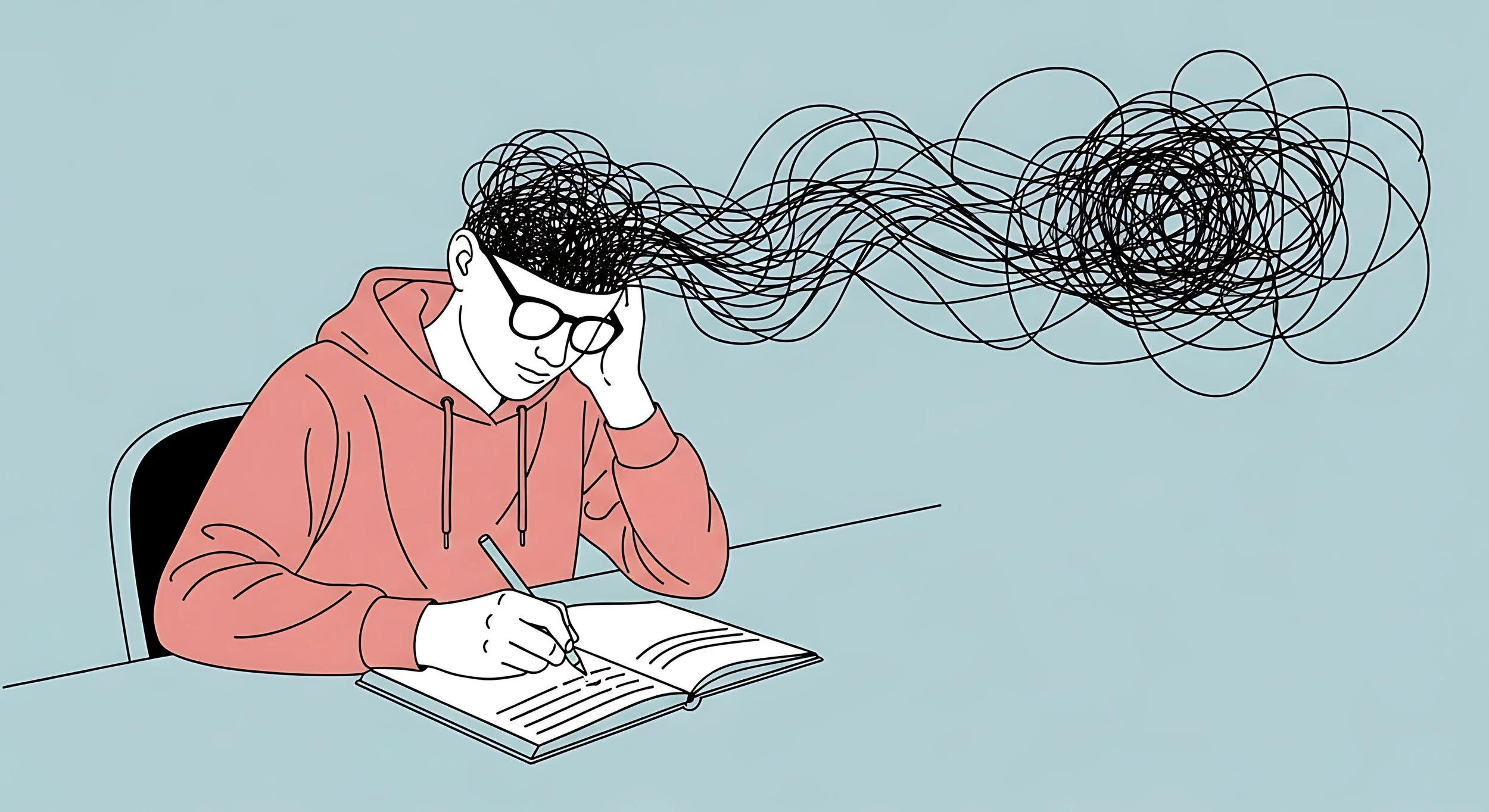Why In-Person Therapy Still Matters for College Students in Brooklyn
College can feel like a whirlwind. One week you’re finding your classes and trying to remember your schedule. The next, you’re stuck in a loop of late-night studying, complex relationships, and questions about who you are and where you're going. It’s a time of growth, but it can also bring a lot of uncertainty. For many students in Brooklyn, the pressure to keep it all together can start to feel heavy.
In-person therapy offers something that college students often don’t get from screens or group chats: uninterrupted space with another human being who listens, reflects, and helps you make sense of what’s going on.
At Groundwork Therapy, we see firsthand how college students benefit from that space. Whether someone walks in with a clear issue or just a sense that something feels off, we work together to get curious about it.
When College Feels Like Too Much
You might be doing well on paper (passing classes, staying social, checking all the right boxes), but still feel disconnected or anxious. That’s not unusual. Some students come in feeling like they can’t catch their breath, even when nothing specific has gone “wrong.” Others find themselves overthinking conversations, replaying mistakes, or avoiding social situations altogether.
A few common concerns students share with us include:
Feeling anxious in class, to the point of skipping discussions or presentations
Getting overwhelmed by perfectionism and never feeling like their work is good enough
Feeling homesick even after months away from home, especially during breaks or holidays
Having trouble sleeping because their mind won’t slow down
Struggling with questions about their identity, culture, or beliefs
Feeling pressure from family to follow a certain path that doesn’t feel right
Losing interest in things they used to enjoy, or feeling more withdrawn than usual
Navigating complicated relationships, from roommates to romantic partners
Paying for tuition
Covering rent, food, books, and other expenses
Maintaining high grades
Meeting scholarship or program requirements
Fear of letting family down
Guilt about leaving home
Finding close friends or a support system
Pressure to fit in socially
Comparing themselves to others on social media
Choosing the “right” major or career path
Managing romantic or sexual relationships
Feeling lonely or disconnected
Navigating cultural or regional differences
Balancing academics, work, and personal life
Coping with unclear expectations or new responsibilities
These feelings are valid. Therapy doesn’t need a dramatic backstory to be useful. Sometimes, students just need a space to speak freely and be taken seriously.
Why In-Person Matters
There is a kind of clarity that comes from being in the same room with someone. Facial expressions, tone of voice, and body language all add depth to the conversation. For students who feel isolated or misunderstood, that kind of connection can offer a steady sense of presence.
Many of today’s college students spent critical years of school online during the pandemic. While those experiences built digital skills, they also left many feeling "screened out" and disconnected. In-person therapy gives students the chance to rebuild those in-the-room social muscles and experience support in a more grounded way.
Many students have expressed that they spend most of their day behind a screen, switching between Zoom classes, group texts, and social media. Therapy often becomes the one hour when they do not have to filter anything. The shift from a dorm room to a quiet office can help them feel more present, more focused, and more heard.
In-person sessions also bring structure. With shifting class schedules, part-time jobs, and changing social plans, having a consistent place to land each week can offer much-needed stability.
It’s Not Just About Crisis
A lot of students think therapy is only for when things fall apart. In truth, it can also help people understand themselves better before they reach a breaking point. Maybe you're not sure what’s bothering you, but you know you don’t feel quite right. Or maybe you're starting to explore questions about who you are, what matters to you, or what kind of life you want to build. These are good reasons to talk with someone.
Final Thoughts
Brooklyn is full of energy, opportunity, and distraction. For college students trying to find their place in it all, in-person therapy can be a quiet anchor. It’s not about fixing you. It’s about giving you the space to hear yourself and decide what you want to carry forward.

